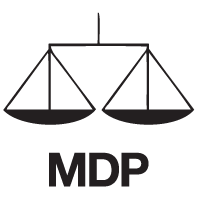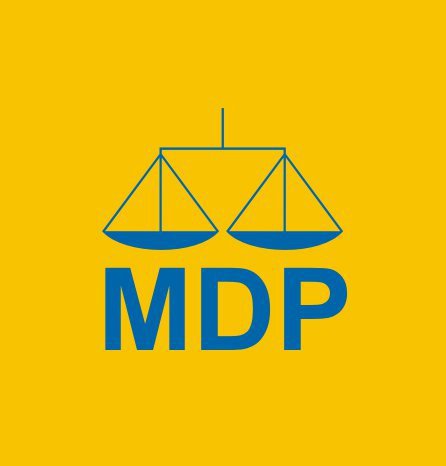Politicized Judiciary Threatens Democratic Transition
Male’: 21 October 2011
The acting Chairperson of the Maldives Democratic Party (MDP), Moosa Manik MP, spoke today of the rising frustration in Maldivian society at the increasingly blatant collusion between politicians loyal to the former autocratic President, Maumoon Abdul Gayoom, and senior members of the judiciary – most of whom were appointed by Gayoom during his thirty years in power.
The MDP Chairman was speaking against a backdrop of violent clashes in the capital, Male, which saw allies of Gayoom attack MDP supporters who were peacefully protesting against a ongoing, highly-politicized Supreme Court case. The attacks have left one protester severely injured – with brain damage and paralysis down one side of his body.
The Supreme Court case is the latest installment of an ongoing attempt by Gayoom to secure a parliamentary seat for his son, Ghassan Maumoon. During the 2009 parliamentary elections, Ghassan contested the seat of Thimarafushi Dhaairaa but was defeated by the MDP’s Mohamed Mustafa. Not accepting the result, the Ghassan took the case to the High Court which ordered the vote to be held again – the only instance in the whole election when a poll had to be re-run. Notwithstanding, Mustafa again won the second vote.
Having lost two votes – both recognized as free and fair by the independent Elections Commission, the Gayoom family again turned to the courts for help. Umar Nasser, a senior member of Gayoom’s political party, lodged a case at the Supreme Court claiming that Mustafa had not been eligible to run for parliament because of an outstanding debt owed to Bank of Credit and Commerce International (BCCI) – a bank which became insolvent and had its loans and debts taken over by the Maldives Monetary Authority (MMA). This is despite the fact that MMA clarified to Mustafa before the election that he did not have any outstanding debt, and the fact that the independent Elections Commission looked into the matter and ruled that he was eligible to stand.
The Supreme Court is due to deliver its verdict on the case shortly – despite the fact that a range of more serious cases against close friends and allies of Gayoom, such as the corruption trial of Deputy Speaker Ahmed Nazim, have been indefinitely delayed (the reasons for the delay are not clear because the judge at the trial inexplicably refused to allow the public or the press to attend the hearings). This fits a pattern whereby cases filed against MDP supporters and those who sympathize with the MDP are fast-tracked while more serious cases against friends and family of Gayoom never reach court.
“Unfortunately, the Mustafa case fits a pattern”, said MDP Chair Moosa Manik, “of blatantly politicized court cases in which senior members of our supposedly independent judiciary are actually intent on defending the political and economic interests of their erstwhile friends and former paymasters from the regime of former President Gayoom. In addition to fast-tracking cases against government sympathizers, and kicking extremely serious cases against Gayoom’s allies into the legal long-grass, it is deeply disturbing to hear senior judges make openly political public comments in the media and go unpunished. For example, the Chief Judge in the Criminal Court has recently made public statements to the effect that he will do all in his power to put pressure on the Government. And yet, the Judicial Services Commission (JSC), which is controlled by those same judges, refuses to take any action. Indeed, last year the JSC received 143 complaints concerning the conduct of judges and, according to its own statistics, none were tabled and discussed in the commission, and only five were ever replied to. Worse, the JSC then decided to suspend its complaints procedure”.
“Unfortunately, whereas the other key political institutions of State have been radically reformed following the adoption of the country’s new Constitution and the first democratic elections, the judiciary is using the sanctity of judicial independence to protect the status quo and to remain unreformed. Nearly every judge appointed by Gayoom has retained his place on the Bench – despite the fact that many of them have no legal qualifications whatsoever.”
“This intolerable situation, which has been justly condemned by the UN Special Rapporteur on the Independence of Judges and Lawyers, and by the International Commission of Jurists, led to the recent MDP demonstrations against certain members of the judiciary and against former President Gayoom and his associates who many see as being directly responsible for manipulating the courts towards political ends”.
“It is extremely unfortunate that when the peaceful demonstration reached the home of former President Gayoom, objects were thrown at them from upper-story balconies including rocks, sharp pieces of metal and boiling water. A 17 year old boy was seriously injured by a piece of wood and has suffered damage to his brain. Our thoughts go out to him and his family”.
“It is clear that the current situation cannot go on. President Nasheed has made strengthening the independence and improving the accountability of the judiciary a priority for his term in Office. However, the judiciary is using its constitutionally-protected independence to resist all calls for change and improvement from the government, from international bodies and mechanisms such as the ICJ and the UN Special Rapporteur, and from the public”.
“We therefore look to our friends in the international community to help us address this difficult situation, and to support efforts to secure that which we all want – a strong, independent, professional judiciary, responsible to the needs of the society it serves”.

